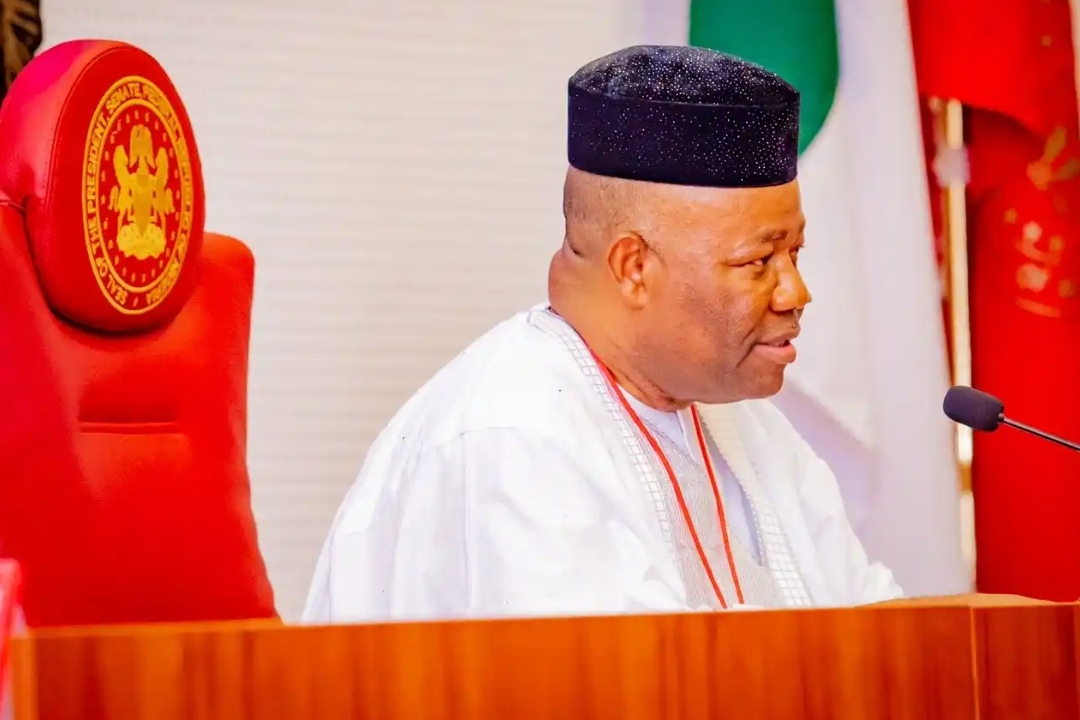Godswill Akpabio, Nigeria’s Senate President, says behavioural change is required to tackle the menace of corruption and failing social norms in the country.
Akpabio, represented by Saviour Enyiekere, his deputy chief of staff, spoke on Tuesday at the national policy dialogue on corruption, social norms and behaviour change in Nigeria, organised by the Independent Corrupt Practices and Other Related Offences Commission (ICPC).
His words: “The process of behavioural change typically involves awareness and recognising the need for change and potential benefits and consequences associated thereof.
“This affects gathering information, learning, and becoming aware of existing behaviours. It also involves motivation and developing the desire to change.
“The motivation to change certain behaviours can be influenced by personal goals, values, social pressures, or external incentives.
“Essentially, behavioural change becomes possible when we educate and inform by providing accurate and relevant information about unacceptable behaviours, their consequences, and alternative options.
“This helps individuals make informed decisions and understand the benefits of the change that we seek. I also believe that in achieving behavioural changes, incentives and rewards play a great role as they tend to reinforce desired behaviours.
“Tangible rewards, recognition, or positive feedback that encourages individuals to continue or adopt new behaviours have the capacity to drive people towards new behaviours.
“Therefore, for us as a country and a people desirous of delivering change to our society and through it, building a nation that caters for its people and makes its resources work for its people, we must use behavioural change as a tool to tackle the menace of corruption and failing social values in our country.”
According to Akpabio, tackling corruption involves transparency and accountability, noting that the 10th senate under his leadership is positioned to bridge existing legislative gaps in the fight against corruption.
“However, institutions like the ICPC must enforce comprehensive anti-corruption laws that criminalize corrupt activities, and establish clear guidelines for ethical behaviours.
“The extant laws of Nigeria have provided for the independence of the judiciary and effective law enforcement agencies to investigate and prosecute corruption cases.
“I also believe that we must develop the courage to promote a culture of ethics and integrity in our schools. This is because fostering a culture of ethics and integrity in the society through education and awareness campaigns will help to promote such values as honesty,” he added.





